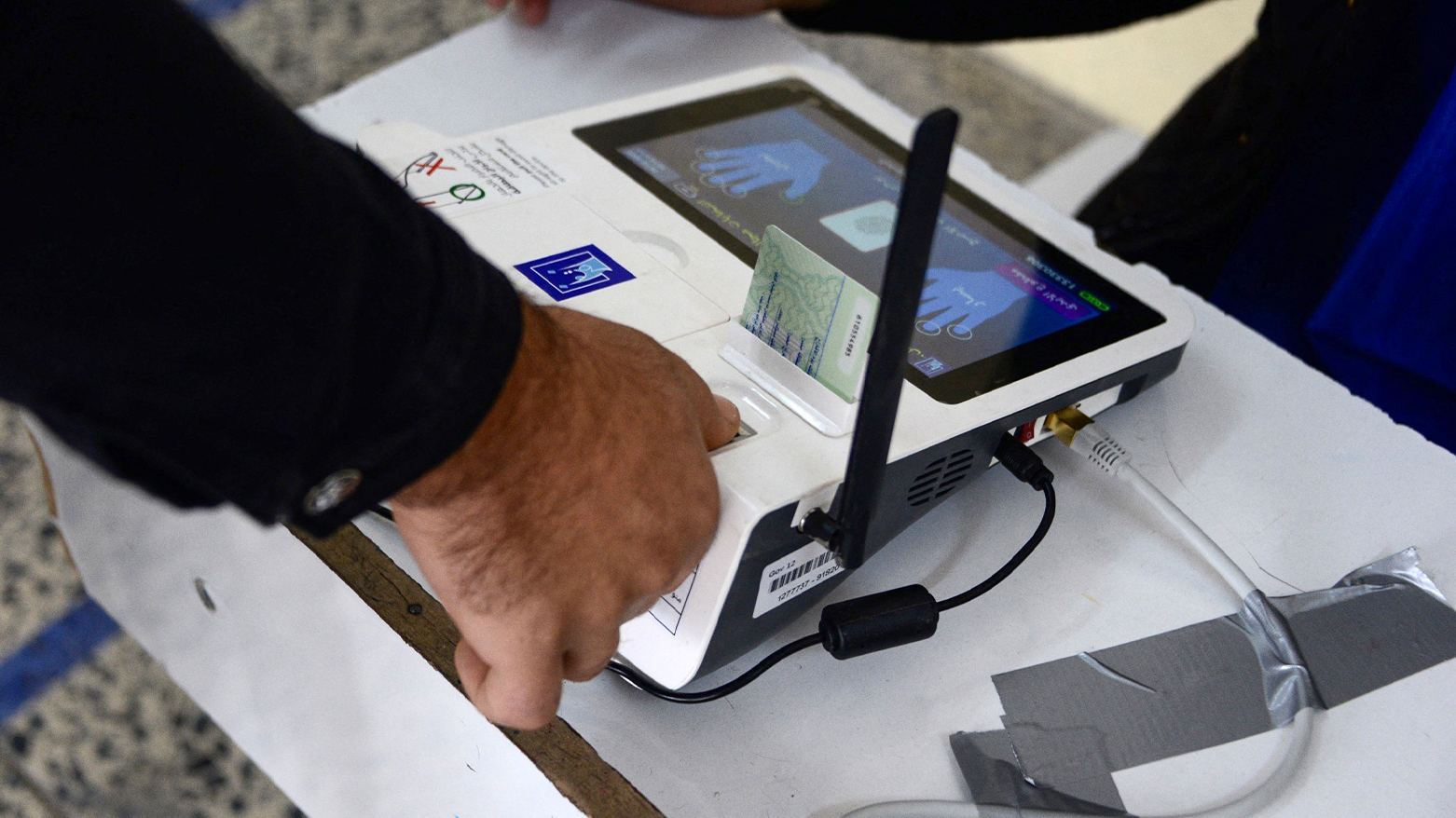IHEC Backpedals on AI Claims Amid Election Tech Confusion
"The circulated news regarding the use of artificial intelligence technology in voting devices is false and inaccurate,” IHEC declared in its official statement.

By Kamaran Aziz
ERBIL (Kurdistan24) — The Independent High Electoral Commission (IHEC) of Iraq issued a firm statement on Monday, denying reports that artificial intelligence (AI) technology is to be employed in the operation of voting devices during election day procedures. The announcement follows a wave of media speculation and contradictory statements from within the Commission itself.
“The circulated news regarding the use of artificial intelligence technology in voting devices is false and inaccurate,” IHEC declared in its official statement, firmly rejecting claims that AI is set to play any role in the technological infrastructure of the elections.
The denial came in response to comments made by Hassan Hadi Zayir, a member of the Commission’s media team, who had previously told local outlets that the results acceleration devices incorporated “several artificial intelligence technologies.” Zayir explained that these devices, through a multi-step process, could recognize signatures on ballot paper backs and differentiate between valid and unsigned papers, suggesting a level of machine learning or AI-based recognition is to be used in the upcoming election.
Zayir had further emphasized the technological integrity of the electoral process, stating that the devices ensured that only the system itself could access and interpret the contents of a ballot form. “The Commission is keen on using all the technological advances available in the world,” he noted, adding that such measures were aimed at ensuring transparency and preventing fraud.
The Commission's official repudiation of these remarks has triggered confusion about the exact nature of the technologies used in Iraq’s electoral system. While IHEC has made clear that no artificial intelligence is involved, it has not fully clarified what software or hardware systems are employed in the processing and verification of votes.
Analysts suggest that the discrepancy may stem from miscommunication or a misunderstanding of technical terminology. While some automated systems may employ algorithmic or optical recognition components, they do not necessarily qualify as AI under standard definitions, which typically imply machine learning, adaptation, or autonomous decision-making.
The IHEC’s emphasis on “transparency” and “anti-fraud” safeguards is part of its broader effort to rebuild public trust in the electoral process following past allegations of irregularities. Iraq has increasingly incorporated electronic devices in recent election cycles to reduce human error and potential manipulation—yet skepticism among segments of the electorate remains high.
In the wake of this controversy, observers are calling on the Commission to publish a comprehensive technical breakdown of its voting technologies to clarify which systems are in use and how they function. Experts warn that in an era of growing misinformation and technological ambiguity, institutional clarity is critical to maintaining electoral legitimacy.
For now, the IHEC insists that while it embraces global technological standards, the use of artificial intelligence in the voting process remains firmly outside its operational framework.
This controversy unfolds amid a global reckoning with the opportunities and risks posed by AI in electoral contexts. According to the International Institute for Democracy and Electoral Assistance (International IDEA), many electoral management bodies (EMBs) worldwide have already been using systems that could qualify as AI.
In its May 2024 report titled "Smart Elections: Is AI the Next Wave in Electoral Management?", IDEA highlights how AI systems can streamline voter list management, detect anomalies in election results, and counteract disinformation.
However, the report also warns of the potential harms of unregulated AI, including data opacity, algorithmic bias, and what it terms 'black box' decision-making processes that could undermine democratic accountability if not properly overseen.
Likewise, the United Nations has underscored the dual nature of AI’s impact on elections.
In a 2024 briefing, the UN noted that while AI can enhance electoral efficiency through chatbots, cybersecurity reinforcement, and real-time data analysis, it also raises serious concerns about deepfakes, disinformation, privacy violations, and manipulation of voter behavior.
UN Secretary-General António Guterres characterized the rise of generative AI as potentially a "defining moment for disinformation and hate speech."
To address these concerns, the UN General Assembly in March 2024 adopted a resolution—led by the United States and backed by over 120 countries—calling for the development of "safe, secure, and trustworthy" AI systems aligned with human rights and democratic values.
The European Union has also passed the Artificial Intelligence Act, set to take effect in 2026, to regulate high-risk AI applications, especially those used in sensitive areas like political campaigning and predictive policing.
As these global regulatory efforts intensify, Iraq’s electoral authorities face growing pressure to clarify the extent of their technological usage. Experts say that even if current electoral tools do not meet the formal threshold of AI, the need for transparency, risk mitigation, and public trust remains critical.
The National Conference of State Legislatures (NCSL) in the United States notes that state-level discussions on AI in elections are increasingly common, focusing on defining the technology’s boundaries, its potential for automation, and the risk of manipulation.
Ultimately, the debate in Iraq reflects a broader global tension: how to harness the benefits of AI for democracy without succumbing to its dangers. While IHEC maintains that no AI is currently used in voting devices, the evolving technological landscape—and the scrutiny that comes with it—suggest that such questions will only become more urgent in future election cycles.
